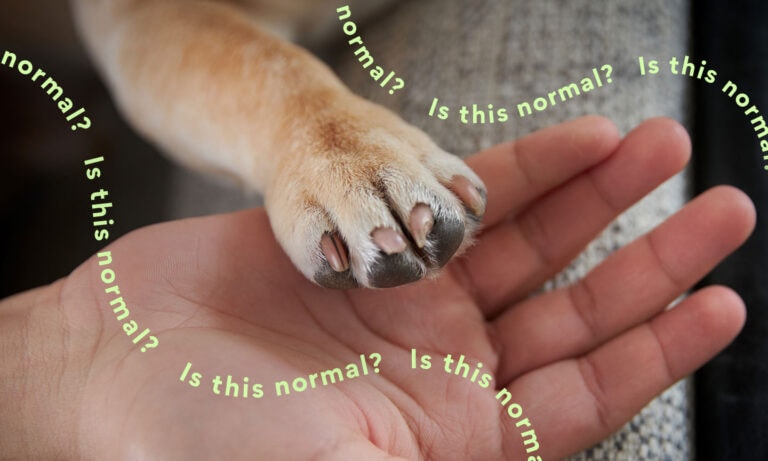Q:My dog chases his own tail. Why do dogs chase their tails? Is this normal?
It's a fairly common behavior, but it might not be normal. In fact, it's not something that should be encouraged.
There are some dog behaviors that are referenced so frequently they've become cartoon punchlines and canine cliches, things like peeing on fire hydrants, barking at mail carriers and excitedly chasing their tails. We can understand why dogs pee on fire hydrants (when you've gotta go, you've gotta go) or bark at mail carriers (stranger danger). But why do dogs chase their tails? It turns out, tail-chasing is a little more complicated.
No one is entirely sure what compels a dog to chase their tail, and some dogs may not stop even when they catch it. It could be due to boredom, lack of exercise, genetics, stress or a medical issue, among other reasons.
“There is a suspected strong genetic component, but the actual cause of tail-chasing is uncertain, and veterinary diagnoses of the condition vary," says Nancy Williams, ACAAB, an associate certified applied animal behaviorist based in Manchester, Maryland. "Some studies found correlations with a number of factors such as neutering or supplements, or environmental factors like exercise, boredom or the number of other dogs in the household. But other studies have not [reached the same conclusions]."
Williams cites a study suggesting that some breeds (Bull Terriers, German Shepherds and Staffordshire Bull Terriers) may be more likely tail-chasers, but even dogs without tails might just chase their own backsides. "In one variant of tail chasing, the dogs spin rapidly without any interest in its tail," Williams says. "Dogs without tails would circle repetitively to the left or right in tight circles."
Dogs could start to demonstrate this behavior when they're young—between 3 and 6 months old—or it might begin before they reach puberty, she says.

But is this normal? Although Williams says that it might be a "normal short-lived behavior" in puppies—and it's something they should outgrow—in older dogs, it could be an indication of a behavioral or medical problem.
She also emphasizes that pet parents should never praise their dogs for chasing their tail, or do anything that could reinforce the behavior. "This includes encouraging it in any manner, such as laughing or grabbing the dog's tail and showing it to the dog to entice it to chase it," she says. "Ignore the behavior at first, to determine if it continues or escalates."
If your dog seems to be chasing their tail more often or if it's difficult to distract them once they start, Williams recommends either working with a qualified animal behaviorist or discussing it with your veterinarian.
"Early intervention with behavior modification is important," she advises. "Behavior modification can be used to redirect the dog's attention using exercise, food, toys or other means of interrupting the tail-chasing. Owners can also consider trick-training and positive [dog training] classes, but since tail-chasing can be exacerbated by stress or anxiety, verbal or physical punishment should never be used."
If you've given these a go and your dog is still frequently spinning in circles, if they can't be interrupted, if they developed the behavior after a "stressful or frightening event," or if they growl or snarl when you try to redirect their attention, then it might be time to set up an appointment with your vet.
"Veterinarians would first rule out if pain, injury or a disease process is contributing to the tail-chasing," Williams explains. "After an obvious medical condition has been ruled out, the problem may be examined as an abnormal behavior problem. It has been theorized to have components of a compulsive disorder [or] a partial seizure disorder."
It might not be that serious—your furry companion could just be bored, stressed or overly excited (and who wasn't bored or stressed last year), or they could be entertaining themselves. But you should keep track of how often it's happening, keep trying to distract them with something that isn't one of their own body parts, and refrain from encouraging it in any way.
You may want to discourage them from barking at the mail carrier, too.
Share:













